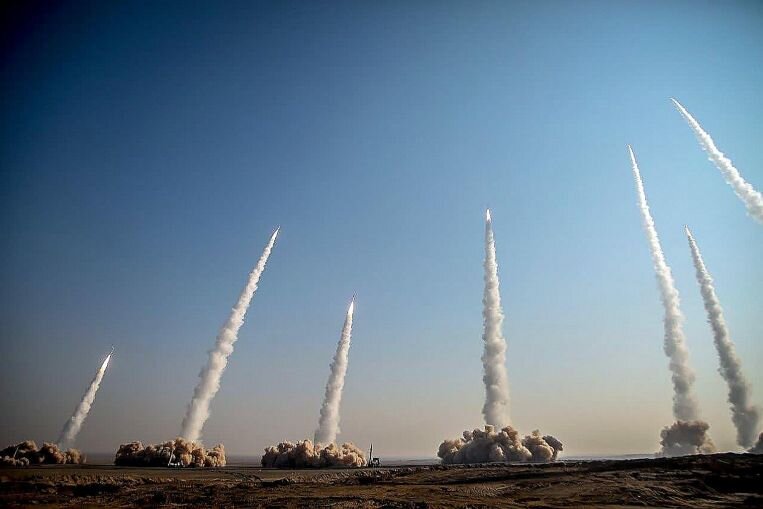

TEHRAN – Iran’s ballistic missile exercise in recent days caused quick and negative reactions by Israel. Israeli officials have expressed their worries over Iran’s military drills in Persian Gulf and Indian Ocean due to Iran’s capability to fire high tech and anti-ship missiles towards simulated targets.
With regard to its determination to use long-range ballistic missiles against hostile warships and aircraft carriers, Iran tested surface-to-surface ballistic missiles and drones in half area of Iran’s territory.
Rising military and political tensions between Iran and Western countries, especially the U.S., have provoke Iranian military officials to plan various military drills in the final days of the Trump administration. Interestingly, these missiles can hit targets 1,800 km away, therefore, they are capable of destroying hostile ships in the Persian Gulf.
Dezful, a kind of Zolfaghar missile, has a 700 km range and 450-kilogram warhead, therefore, it is able to hit any targets in West Asia. Moreover, Emad, Sejil, and Ghadr missiles are used in the maneuver to show Iran’s resolve to defend its security and interests by conventional weapons.
In addition to missile, Iran’s Islamic Revolution Guard Corps unveiled bomb-carrying drones which enhance Iran’s capacity to transform the balance of power in West Asia. The Jerusalem Post reported that some of these drones have a 2,000 km range, meaning they can hit different targets in Israel depending on where they are launched.
Meanwhile, Trump’s foreign and security team has declared that America wants to add Israel to CENTCOM mission, coordinating military activities among the U.S., Bahrain, the United Arab Emirates, and Israel. Nevertheless, the Pentagon has not announced how the move will affect its planning and operations in the region.
According to Air Force Magazine, Israel and the U.S. want to send a “strong deterrent message of unity and continued U.S. commitment to regional leadership”.
Concerning its military capabilities, the Islamic Republic of Iran has clearly announced that it will never discuss or negotiate over its defense capacities, notably its missile program, even if the U.S. rejoins nuclear deal and lifts its unilateral economic sanctions.
Nonetheless, it seems there is a huge disagreement between Israel and the incoming American administration regarding Biden’s likely decision to return to the nuclear accord. Indeed, the right-wing government in Israel is making tremendous efforts to persuade Biden’s security team to rejoin the nuclear deal conditionally. By doing so, Netanyahu intends to encourage the next U.S. government to set negotiating agenda with Iran based on nuclear as well as missile issues.
Despite testing of conventional surface-to-surface missiles by Iran, Shimon Stein and Shlomo Brom, the experts of the Institute for National Security Studies, have recommended the U.S. to maintain the priority of the nuclear program. They hope the Biden administration to establish a framework for regional dialogue, including Arab countries and Israel, in order to place strict constraints on range of Iran’s missiles and its regional behavior.
 RSS Feed
RSS Feed















 January 19th, 2021
January 19th, 2021  Awake Goy
Awake Goy  Posted in
Posted in  Tags:
Tags: 













